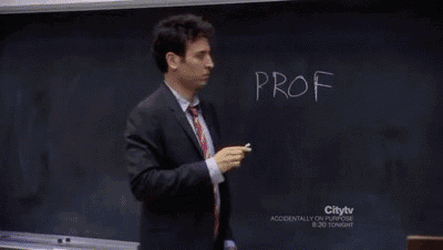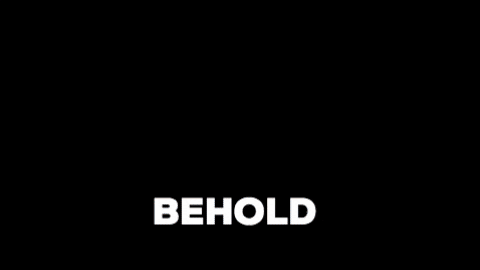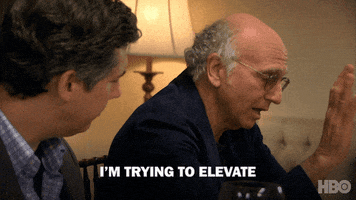General Guide to the Job Search
Introduction
Navigating the job search can be difficult, especially for those who are early in their careers or just haven’t had much practice searching. As a recruiter and career advisor, I have refined my own set of best practices I use with my clients and will share those best practices with you in this guide. This is not a short bullet pointed article, neither is it as in depth as it could be. I am meaning for this to be a comprehensive summary of the basics you need to know to go from zero to one in any job search.
To start, I will cover Goal Setting, figuring out what career and then more specifically, what position you want to pursue. From there we will talk about the Personal Content, such as resumes, LinkedIn profiles, and portfolios, that you need to create to apply to jobs. Then we will talk about the Job Search Process of searching, applying, and networking. From there, the basics of Interviewing. And finally, some tips around landing the best Offer.
Setting a Goal
The very first step in any endeavor is to establish a clear goal. I would break your job target into two main parts: career and position. Career is the general work you want to be doing and position is specific to the company. Figuring out your ideal career and position is not easy and takes a lot of research, experience, and reflection. But the more clearly you articulate the job you are targeting, the more likely you are to make it happen. The bottom line here is that work is a huge part of your life; how much money you make, how you spend your time, the people you will meet, and it is essentially that you spend however much time you need to make sure you are making a smart, informed decision about what career and position you are pursuing.
Choosing a Career
I recommend thinking about careers in terms of the Japanese philosophy of Ikigai. The ideal career is a mix of four pieces: what are you good at, what are you passionate about, what makes you money, and what benefits the world. Typically, if you find something you are good at and passionate about, you can do it well enough to make the money you need to support yourself so I recommend prioritizing ability and passion first.
To figure out what you are good at and passionate about, you have to be exposed to and try a lot of different things. So as early on in your education as possible, you should explore different career opportunities that sound interesting to you. Get internships, talk to people in the working world, and do research. The time you invest in finding the right career is time well spent as you gain a huge advantage in your trajectory. If you don’t know what career you want yet, well the second best time to figure that out is now.
Choosing a Position
More specific than what career, you will next have to pick which positions to apply for. You might realize you want to be in sales, but sales is very different depending on the company, product, or level. There are also things like the culture, growth opportunities, and work-life balance that should also be taken into consideration when looking at different opportunities. The important thing here is to have a few job titles that fit the work that you want to be doing and know what kind of company and work environment you are looking for. This will play a large role later during the interview process as knowing what you want will determine both what you tell the interviewers and what questions you ask.
Personal Content
The next stage is to build out your personal content you will need through the job seeking process. Having a good resume is obvious, but there is also a huge benefit from a well curated LinkedIn profile, cover letter, and portfolio.
Resume
Many people think that a resume should be a comprehensive summary of your work experience, but this is wrong. A good resume focuses on and highlights the skills, interests, and experience that would make you a good fit for the position you are applying for. It is a best practice to edit each resume you send out to be specific to the job you are applying for, but this won’t take long and will get easier as you practice doing it. It is also important to make your resume clear and easily searchable for the information that a recruiter or hiring manager would need to decide if you could be a fit for the role. If you want to dive deeper on how to write a good resume, you can check out my article on that here.
Especially in white collar work, LinkedIn has become increasingly pervasive and helpful in networking and finding opportunities. A well curated LinkedIn profile means you can connect with more professionals who might help you find your next position, and it is often viewed by recruiters and hiring managers when assessing whether you would be a good fit for their open role. It is important to have a professional photo, a clear and organized work history, and well crafted personal summaries and headlines.
Cover Letter
You want your cover letter to be short and specific. A few lines on why you are interested in the company and one or two lines on why you would be a good fit. That’s it. You don’t need some amazingly written short story on how this is the perfect job, just something that shows you did your research into the company, know what you want, and know why you would be a good fit. And trust me, recruiters and hiring managers don’t want to read a long generic cover letter as much as you don’t want to write one.
Portfolio
Some applications can be greatly enhanced by a portfolio. Do you do design work? Do you code and have a github? Do you write or create content that you want to showcase? Having a clean and well organized way to share work that helps recruiters and hiring managers understand if you are a good fit for the role will greatly increase your chances of being considered.
Job Seeking Process
Ok, now that we have clearly defined our ideal role and curated our personal content, we are ready to run our search. A good search is about having a good process, being consistent and timely, and always optimizing your chances. We also want to be picky, as getting an offer is no good if we wouldn’t accept it.
Searching
The first step is to know what criteria you are searching for. Most important are job titles, location, and type of company. Many of the job search tools like LinkedIn and Google will allow you to enter a range of criteria that can help narrow down your results so you don’t waste time applying to positions that would not be a fit.
You also can set alerts with many job search platforms that will send you an email any time a company posts a role that fits your search criteria. This is a great way to make sure you are one of the first applicants and greatly increase your chance of being considered.
Besides meeting your basic criteria, make sure that you are reading the job description to really understand if the work and responsibilities align with what you are looking for. I think that candidates should be critical of the job description as it is usually a strong signal for determining if a company and a hiring manager know what they are looking for in the right candidate and what responsibilities this person would have.
Applying
You should tweak your resume and make a custom cover letter for each position. This should not take very long as most of the time this means to simply change a few works and order of responsibilities, but by highlighting the specific experience and skills in your resume the company says they are looking for in their job description, you make it much more likely they will see you as a potential fit, so it is always worth the extra few minutes.
After you apply, go to the company’s LinkedIn and find recruiters and anyone else at the company who might be a good connection and send them a connection request. Always include the note. Something simple like “Hey James, I just applied to a Sales Development role at your company and would love the opportunity to connect with you. If you have some time later this week, I would be interested to get on a call and hear more about your experience at your company. Cheers.” Don’t expect this to work every time, but the responses you do get could be the difference between a no reply and landing the position.
Networking
While job searching, it is very valuable to build out your network. Connecting with people at the companies you are applying to is one way, and you should also constantly seek out other professionals in your field you can connect with. Don’t expect them to offer you a job, but simply ask to hear their thoughts on how to find work in the field and if they have anyone they can connect you with who might be another good person to talk to. This is important, you always want to turn each connection into at least one more connection. You never know who might be the connection that leads to your next opportunity.
Interviewing
Interviewing well takes practice, but there are a few key things you can do to prepare that will give you an edge in your next interview.
Know What You Want
I started this guide by stressing the importance of having a clear job goal and this is not just so you are effective in your search, but also because this selectivity is a good signal to an interviewer. Recruiting is not just about finding candidates who can do the work, but who are interested in doing the work and will be a long term fit. A candidate who knows what they want is far more likely to accept and commit to a position for a longer tenure. Selectivity is also a sign of a strong candidate, as the candidate is thinking critically about what they want and probably have options if they are being picky. So by knowing what you want in an interview, you send a very positive signal of your quality as a candidate.
Knowing what you want is also important as this will inform all the questions that you should be asking the interviewer. Do you really care about growth opportunities? Maybe you are just trying to make as much money as you can. Or maybe you want a job you find rewarding. By knowing what you want and asking questions that will help you discover that, you can make sure you are making a good decision yourself, and further signal to the interviewer that you are a high quality candidate.
Research Your Interviewer
The more you know about your interviewer, the more likely you are to know how to approach the interview and to find a good connection. In the sales world, it is often said that people don’t buy products, people buy people. This is to say that while every interview process should be about the skills and experience you bring to the table, it is impossible to remove the human element of an interview and it can go a long way to helping your chances if your interviewer likes you as well as thinks you could be a good fit. Finding a common interest, common connection, or just referencing something they wrote or created can go a long way in building a strong connection.
Know How to Talk About Your Work History
It is pretty common that at some point in the interview process you will have to talk about your education and work history and you should be prepared. Key things you will want to be able to talk about is what caused you to leave a position and what attracted you to your next one. This is important as interviewers are trying to understand what you are looking for and what you are trying to avoid. Ideally, the position you are applying to has many of the pull factors and very few to none of the push from your past opportunities. More broadly, your work history should also show clear progression to a goal or at least an increase in an understanding of what you want from your career.
Know How to Talk About Your Work
The Feynman technique is the idea that the better you can explain an idea or concept in simple terms to someone, the stronger your own understanding. So when I am assessing ability as a recruiter in an interview, I don’t need to know how to do your job to judge your knowledge, I just need to ask you to explain it to me and see how well you can do in helping me understand it.
This means that you should practice explaining your work to people. What is a good philosophy to follow, what is your ideal process, and what are best practices for your work? Plus, the effort you put into being able to better explain your work will also help you be better at being aware of and applying these best practices in your actual work.
If I was to give a very simple framework that work processes should follow, I would say the first step should always be identifying the problem. This means research through conversation, looking at data, or reading. Then making a plan of action to achieve a clear solution that solves that problem. From there it should be all about proper communication and coordination to make sure you are on the right track. Feedback loops are always important. Once the solution is produced, you should make sure it actually solved the problem and gather anything you learned.
Other Best Practices
A few other important points. Small talk is important. Don’t feel like you have to rush into the interview. This can help make the interview more relaxed and set a better tone.
Let the interviewer set the pace, much like they are the person landing in a dance. This means answer the questions they ask and keep your answers succinct and focused. If they want more information, they can always ask follow up questions.
The first interview should cover many of the basic information about the interview process and make sure there is broad alignment. This means the interviewer should tell you roughly how long the process will take, how many stages, what those stages are, and logistical things like comp and remote vs office vs hybrid.
Offers
As you get toward the end of your job search, you should start thinking about how you are going to handle the offers. Ideally you want to be talking to a few companies and working with their recruiting teams to wrap up the process and receive the offer all around the same time. This will help you make an informed decision where you can consider all the offers together and even use other offers as leverage to get better deals.
When a company does make an offer, always say that you have to talk to your partner/family/consult the oracles or whatever before giving a response. This gives you the room you need to think about the offer and negotiate. Don’t be afraid to ask for more. If they won’t increase the base, maybe they will give you a signing bonus, more stock, or better PTO.
Ultimately, accepting an offer means that you know everything you want to know to feel like you are making the right decision and that the company is compensating you fairly for what you think you are worth. Take the offer seriously and always read it through before signing.
Conclusion
And that is the quick and dirty guide to the job search. Hopefully you find this helpful, and if there is anything you want to learn more about, please ask. I am responsive if you reach out to connect on LinkedIn or send me an email through the contact page. As I mentioned, many of the strategies I covered here I either have already written about in more detail or plan to write about in the future. Happy job hunting.

















